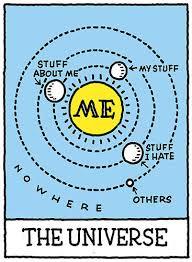Marcia Sirota's Blog, page 35
March 9, 2017
The Entertainment Industry’s Double Standard Toward Women and Men
It’s International Women’s Day and I’m celebrating being a woman. I’m also taking the opportunity to vent a bit about an issue that’s been bothering me for a while, now. It’s about the glaringly different ways that men and women are represented in the entertainment industry.
First, let me say that I unequivocally support any grown-up person who chooses to dress sexy or present themselves as a sexualized being. If that’s what they want, good on them. I believe that everyone should be free to put themselves forward in the world in whatever manner they prefer, as long as it’s their genuine choice and no-one is getting hurt in the process.
That being said, I wonder what it means when I look at starkly different representations of men and women in every magazine article about a new young celebrity, or almost every photo or video of people performing at a concert, attending an awards show, going to a club or attending a film opening.
In these pictures, I invariably see the men in suits or casual clothes – all covered up – and wearing comfortable shoes, and I see the women, especially the younger ones, in clothing that’s overtly sexual. It strikes me as odd that the women are so consistently portrayed as sex objects and the men so consistently are not.
I can totally accept that some of the time, these women might really want to present themselves in this way, but every single time? Do they never wish to be photographed in jeans and a t-shirt? Or even in a dress that isn’t particularly sexy, and shoes that aren’t sky-high?
I also wonder whether sometimes the men might want to walk around in tight or skimpy clothes and shoes that make their legs look longer and that push their behinds out further. But neither of these things seem to happen much at all.
Am I mistaken when I conclude that women in the media are being portrayed in a consistently sexualized manner, whereas men are portrayed merely as human beings doing a job? If, indeed, I am correct, it means that we have a huge problem on our hands that very few people are talking about.
Like I said at the outset, I have no problem if adult people want to dress sexy. That’s their free choice. What I do have a problem with is how differently men and women in the entertainment industry are being portrayed. I detect a double standard here.
What I’d like is a little bit more consistency and parity. Maybe, if we have young people doing a photo call for a new film, let’s have both the males and the females in the same type of garb. Either all of them should be in lingerie, or none of them. All should be in clothes with peek-a-boo cut-outs and thigh-high slits, or none of them. Why do the guys get to wear sneakers while the women must totter around in stilettos?
Sex is great, being sexy is great, looking sexy is great. Double standards, not so much. I don’t see why a young actress in a magazine article describing her talent and her latest projects must be photographed in her underwear, when a young man in the same situation is photographed in jeans and a shirt.
These very different types of representations make me feel like women in the entertainment industry primarily are being valued for how sexually alluring they can be to men, as opposed to how talented, interesting or intelligent they are.
That makes me frustrated, because the men in the same industry do seem to be valued for their talents and abilities. Even the admittedly sexy ones aren’t expected to be photographed in their underwear, every single time.
If I had my druthers, I’d have both men and women in the industry free to choose if and when they want to look sexy and if and when they want to be casual and comfortable. And most of all, I’d have our society valuing women not just for their looks or their ability to turn men on, but for their brains, their skills, their sense of humour, and their talents. In exactly the same way as men are.
Sign up here for my free monthly wellness newsletter. April is about being more empowered in your relationships.
Listen here to my latest podcast. Author and psychologist Emily Esfahani Smith talks about how to live a more meaningful life.
March 8, 2017
On IWD 2017, Know That Feminism is Our Future
It’s very strange to me that the notion of feminism currently seems to be equated with man-hating or man-bashing.
As a feminist myself, surrounded by many other feminists, it’s clear that none of us have the least bit of animosity, contempt or destructive wishes toward men.
For feminists the world over, the term identifies those of us who simply want men and women to be regarded as equals and treated as equals. Nothing more and nothing less.
We feminists have nothing against men. We have no wish to take anything away from them. What we do want is for men to share what they have with women.
Feminists don’t feel superior to men; we’re not angry or hateful toward men, and we don’t want to deprive men of what they’re entitled to, either.
What we want is to be on an equal playing field; accorded the same rights, privileges and protections as men, as well as the same opportunities and rewards.
Anyone who’s paying attention can see that there’s nothing anti-men about these wishes.
As a feminist, I acknowledge that there are differences between men and women, as well as the fact that there may be things that some men are better at than some women, and vice-versa, but none of this makes either gender superior or inferior.
I wonder whether those men who decry the notion of feminism simply don’t want to share what they have with us, and whether those women who are “against feminism” are simply alining themselves on the side of those who have more.
Men who oppose feminism appear to want it all for themselves; all the power, the money, the rights and privileges, even the freedom to behave badly toward women.
Women who oppose feminism appear to be fearful of alienating men. They must have so little faith in our capabilities as women to advocate for ourselves and to achieve our goal of living as equal, and successful, members of society.
Perhaps these “anti-feminist” women are fearful of potential male backlash against our attempts at becoming equal citizens, or maybe they just don’t understand what feminism really is.
It’s sad when women say they oppose feminism, because if they bothered to learn what it actually is, how could they disagree with an idea that proposes their having the same rights, opportunities and privileges as men?
Unless of course, these women believe that men wouldn’t like them if they were equal. This presupposes that some (perhaps many) women are prepared to abdicate their rights to equal citizenry, believing that this would make them more desirable to men.
What both men and women need to know is that everyone will be happier if women are accorded equal rights.
Women making equal wages will only benefit families; women being regarded as equal will decrease violence toward women, both domestic and otherwise, and women being their best selves will be more interesting, loving, joyful and giving partners to men.
Another important thing that embracing feminism could do is decrease female hostility toward men.
Women who are disenfranchised (whether through their own choice to reject feminism or because of the way things are) very often resent men. They become angry, even enraged toward men who hold the balance of power.
Women often can be contemptuous of their husbands or boyfriends, complaining bitterly about them to their female friends.
Women can leak their hostility toward their partner or explode in anger, all because they’re enraged at the obvious, and obviously unfair, power imbalance that exists between a fully empowered male citizen and a woman who is, for all intents and purposes, considered to be a second-class citizen.
We feminists, on the other hand, see ourselves as equal to men, so even if society refuses to accord us our equal rights, we assert our needs in our personal and professional relationships.
Feeling empowered, we have no reason to feel anything other than warmly and positively toward the men in our lives.
Feminists don’t tolerate abuse, so we don’t build up rage toward men; we assert ourselves in the workplace, so even when we’re treated unfairly, just because we’re women, we don’t resent men so much as bemoan the antiquated, dumb-headed system that prevents us all from being our best selves.
Nothing bad will come of us embracing the notion of feminism. Yes, perhaps some greedy, selfish men will resent having to share, but they’ll just have to get over it.
And perhaps some fearful women will want to hold onto the idea that a man will only want them if he doesn’t have to respect them, but hopefully they’ll see that it’s better to be loved as well as respected by the men in their lives.
Feminism is not a dirty word, anymore than love is, or respect, or compassion or consideration. When people see this, perhaps we’ll be able to move a bit closer to a world in which men and women get to share all the good things in life, equally.
Sign up here for my free monthly wellness newsletter. April is about being more empowered in your relationships.
Listen here to my latest podcast. Author and psychologist Emily Esfahani Smith talks about how to live a more meaningful life.
You can also check out the TEDxEuston talk by Chimamanda Ngozi Adichie, the award-winning Nigerian author, on why “we should all be feminists.”
March 4, 2017
Make March Break More Meaningful for Your Teens
March Break 2017 is almost upon us and everywhere, parents of teens are scrambling to figure out how to occupy their kids’ time for an entire week. Many parents are planning vacations, sports camp or some other fun activities for their teens, but I think that this is a missed opportunity.
At a time when teenagers are more insolent and alienated than ever, March Break could be used as an occasion to bring the family together and reinforce positive values.
Instead of taking the family to a resort or a theme park, I suggest engaging the entire family in some type of meaningful activity that strengthens family bonds, builds self-worth and makes a contribution to the community.
Many teenagers these days have adopted the mindset of goofing off and partying as much as possible. Sadly, they have almost no repository of meaning in their lives. They’re bored and disillusioned because they’re not involved in anything that’s really gratifying.
These teens are being coddled by their parents and now, because of misguided parental and school board interventions, teachers are barely permitted to discipline these out-of-control youth, let alone instill in them constructive values.
These spoiled kids get caught in a vicious circle of boredom and emptiness. They seek out pleasurable yet unsatisfying solutions to their existential malaise, which only amplifies their anger and discontent.
Parents need to take advantage of every opportunity to redirect their teens’ energies toward more constructive and fulfilling activities, or risk raising a generation of irresponsible, entitled youth with barely any coping skills to bring to their adult lives.
The answer is to start today by filling their teens’ lives with meaning. Meaningful activities are those that contribute to the betterment of others, whether it’s the family, the community or the world. Parents can offer their teens a number of options for how they’d like to spend a Meaningful March Break.
This could be volunteering at a food bank or homeless shelter. The family might take shifts at the local humane society or cat rescue. They could do a stint for Habitat for Humanity or other area housing projects.
The family could spend time visiting at a senior’s center or children’s hospital, or they could serve up meals at a soup kitchen. They could join a clean-up crew for a local park, beach or stretch of highway. The list is endless. The point is to choose a positive activity that everyone can do together.
The teens might be convinced that they’d rather spend the week on the beach or at hockey camp and these activities are fine, in and of themselves. It’s just that the family will feel very differently after a week of shared meaningful activities.
Parents and teens will have a greater sense of self-worth and they’ll connect so much more to each-other through having spent time making a contribution to their community and their world.
Think about it. You can spend the week entertaining your teens or you can make March Break 2017 more meaningful for your entire family.
Sign up here for my free monthly wellness newsletter. April is about being more empowered in your relationships.
Listen here to my latest podcast. Author and psychologist Emily Esfahani Smith talks about how to live a more meaningful life.
March 1, 2017
Emily Esfahani Smith on Creating a Meaningful Life
Lately, I’ve been thinking about what it takes to live a good life. With all the challenges that we face, with regard to our family, work, health, finances or political situation, it can be difficult to carve out a life that feels satisfying, fulfilling and worthwhile. Fortunately, I had the opportunity a few weeks ago to interview an expert on living a meaningful life for my Ruthless Compassion podcast series.
Emily Esfahani Smith has a master’s degree in positive psychology and writes about culture, psychology and relationships for a variety of publications. Recently, she published The Power of Meaning: Crafting a Life That Matters (Viking Press). Ms. Esfahani Smith wrote in her book that meaning is what will enable us to live a good life, so I was particularly interested to talk with her about how we can go about doing this.
In her definition of a meaningful life, Ms. Esfahani Smith includes belonging to a community, making a contribution and living with a greater purpose. In her definition of happiness, Ms. Smith includes seeking comfort, pleasure and enjoyment.
I’ve noticed that there seems to be a lot of unhappiness going around today, and a lot of social disconnection leading to loneliness and isolation. People are pursuing happiness more than ever, but they seem to be more miserable and alienated than ever before.
It’s not difficult to see how the pursuit of happiness can leave us with only fleeting moments of pleasure or relief from pain, but might fail to satisfy in the long run. If, on the other hand, we look to create meaning, we can seek out relationships and experiences that will deeply nourish us over the course of our lives.
In my discussion with Ms. Esfahani Smith, and in reading her book, it’s become clear that the secret to finding happiness is to stop looking for it directly and instead, work on creating a meaningful life. When we’re living a life filled with meaning, moments of happiness will come to us instead of our having to chase after this illusory goal.
So how do we live lives filled with meaning? We focus on giving to others, rather than accumulating more money and things for ourselves. We deepen our sense of belonging to our families, community and world. We connect to others through acts of loving-kindness and altruism. We open our hearts and share what we have.
Instead of pursuing wealth, popularity, fame or more influence, we can choose to live with greater purpose; to be part of something bigger than ourselves. This can mean becoming a social activist, deepening our spiritual practice, or becoming a better friend, spouse or parent.
Living with greater purpose, according to Ms Esfahani Smith, is having a goal that we’re always working toward, and that always involves making a difference in the world, our family and/or our community.
Life can be painful at times. There’s loss, disappointment, failure. Often, we feel out of control of the events going on around us, be they political, economic or environmental. It can be tempting to focus on pleasure-seeking activities to distract us from these overwhelming issues. Unfortunately, these distractions won’t make us feel any less hurt, angry, frightened or frustrated, and they could create further problems to our lives.
If we focus instead on creating a meaningful existence, it will help to put into perspective the painful parts of our lives. We can feel better about ourselves, other people and the world when we’re participating in relationships and activities that are positive and beneficial. When we pursue meaning, we can be less stressed, more fulfilled and yes, even find a measure of happiness.
Click here to purchase Emily Esfahani Smith’s new book, The Power of Meaning.
Ms Esfahani Smith will be appearing at the Curious Minds Weekend in Toronto on March 5th at the Hot Docs Ted Rogers Cinema, 506 Bloor Street West, from 5:15–6:15 pm, discussing The Secrets to a Meaningful Life.
Sign up here for my free monthly wellness newsletter. April is about being more empowered in your relationships.
Six Simple Tips for Workplace Success
The workplace can be a real minefield of challenging interpersonal dynamics, so I’ve updated this article for 2017. Here are six helpful tips for being more successful at work.
1: Take responsibility for yourself. No-one respects a colleague or employee who blames others for their problems or mistakes. No-one trusts such a person either. If you want to be put in positions of greater responsibility, you need to show your bosses that you can take responsibility for your actions.
2: Get along with the people in your workplace. This is as important as, and sometimes even more important than your productivity. Your superiors don’t want to have to deal with the problems that arise from your interpersonal difficulties. They’ll respect you more if you have cordial working relationships, and will be aggravated with you if you don’t.

3: Practice defensive working. Just like with defensive driving, where you literally steer clear of the dangerous drivers, you need to identify the problematic person or people in your workplace and engage with them as minimally as possible. You don’t want to be seen as the person who’s always in conflict with one or more colleagues. It will reflect badly upon you.
4: Make your boss look good. If your boss sees that you’re an asset to their career they’ll want to keep you around, which could translate into better working conditions and perhaps even a better salary for you.
5: Don’t draw attention to your mistakes. If your boss comes to you with a problem, do admit your part in it, but you don’t have to fall on your sword. On the other hand, you don’t have to go out of your way to draw their attention to where you’ve messed up. It’s hard enough to get ahead. Own your part but don’t overly-incriminate yourself.

6: Your workplace is not your home, and the people you work with aren’t your friends or family. You can’t count on your boss or colleagues to build your self-esteem, so don’t try so hard to “prove” yourself to them. In the workplace, you have to be strategic in your relationships because your professional reputation and financial security are at stake.
Emotional intelligence is essential for workplace success, so take responsibility for yourself but don’t fall on your own sword; try to get along with people but don’t confuse your colleagues with your loved ones, and be strategic in subtly letting your boss know that you’re responsible for their looking good and by avoiding troublesome co-workers who could undermine your success.
Hopefully, these reminders can help you boost your performance in your current workplace or help you do better in a future position.
Sign up here for my free monthly wellness newsletter. April 2017 is about becoming more empowered in your relationships.
Listen here to my latest podcast. Emily Esfahani Smith talks about creating a meaningful life.
February 25, 2017
Spoiling Your Teen is Ruining Their Life
As family day approaches, I’ve been thinking about the way some teenagers are growing up these days. I see these kids all over. They’re angry and frustrated, miserable and lost, and it’s mainly the fault of their parents who’ve been letting them down.
These teens are spoiled, overly-entitled, self-centered and averse to hard work. They expect to win at everything they try, despite putting in hardly any effort.
They don’t expect any real consequences for their lazy, selfish or bad behaviour, and they focus on the pursuit of comfort and pleasure, rather than on creating a meaningful existence for themselves, now and in the future.
Perhaps the parents of these teens have been trying too hard to compensate for the harsh parenting they themselves received. Perhaps, they were neglected as children and are so devoid of self-love that they look to their children for their sense of worth. They think that being “nice” will enable them to feel better about themselves.
Unfortunately, spoiling one’s children doesn’t make anyone in the family feel better. Neither parents nor children benefit from this approach. All it does is foster disconnection, disrespect, even contempt.
Overly “nice” parents are trying too hard to ingratiate themselves with their teens. They’re excessively lenient with their children, allowing them to come and go at all hours of the day and night. They tolerate being talked back to with the utmost disrespect.
These parents demand almost nothing from their teens and instead, reward them for ordinary activities that any parent ought to expect from a child; for example, keeping their room clean or doing their homework.
This fails to instill proper values into their children, whose characters are in the process of developing. It risks turning out a bunch of narcissistic, antisocial young adults who expect to laze about and have everything handed to them on a silver platter.
Too-nice parents are trying to please their teens and be their pal instead of guiding them, setting appropriate limits and teaching their children how to be good people in the world who are capable of living good lives.
They’re not doing their children any favours, as their parenting style is backfiring, big time. When everything comes too easily and nothing is seen as important, wrong, or forbidden, nothing actually matters anymore.
The more these parents spoil their children, the more the kids go off the rails, becoming hedonistic instead of community-minded, lazy instead of imbued with a positive work-ethic, and narcissistic instead of considerate toward other people and the world.
Spoiled teens live unhappy lives devoid of meaning. Their sense of self is fragile and unstable and their relationships with adults and peers are shallow and unsatisfying.
The more these “nice” parents spoil their teens, by allowing them to do whatever they want, not demanding much of them and depriving them of appropriate consequences for their unacceptable behaviour, the more wretched these kids are.
Without guidance and limits these young people flail about, seeking more and more external stimulation to compensate for the boredom and emptiness of their self-indulgent, meaningless existence.
They amp up the partying, shirk their schoolwork, push their parents away, go off the rails. From being so spoiled, they’ve become fixated on the pursuit of pleasure and the avoidance of hard work.
These youth don’t understand that what will make them feel better is being more responsible and thoughtful, as opposed to more self-indulgent and impulsive. Their parents have set them up for a life of misery.
If we’re to save our teens from their current suffering and from a horribly bleak future, we need to stop being their pal and start parenting them.
It’s not enough to love our children; we have to help shape them into people who’ll grow up to live rich, satisfying lives filled with meaningful work, activities and relationships.
My new book, Be Kind, Not Nice: How to Stop People-Pleasing, Build Your Confidence and Discover Your Authentic Self is now available on Amazon.com and Amazon.ca
Sign up here for my free monthly wellness newsletter. March is all about creating success at work. And listen here to my latest podcast with Emily Esfahani Smith on living a meaningful life.
February 23, 2017
What Happens to the Children of Extreme Narcissists?
I recently wrote a post about who marries an extreme narcissist. Now, I’m going to talk about what happens to the children of extreme narcissists. In my practice as a psychiatrist, I’ve encountered many such children and they’ve all been adversely affected by having one or both parents with this personality type.
The child who grows up with one or both parents who are extreme narcissists is inevitably going to be lacking in love, validation, mirroring and approval. They will have a deep sense of insecurity and be lacking in confidence. This is because the narcissist is incapable of really seeing or loving their child.
A loving parent wants to know everything about their child. This parent is fascinated with every little nuance of the child’s personality and behaviour, and the parent celebrates their child’s uniqueness. This causes the child to love and value him or herself for the special individual that they are.
A loving parent values their child, just for who they are. This parent loves their child unconditionally and nurtures them so that they can grow into the best version of themselves.
The narcissistic parent, by contrast, sees their child as an extension of their own ego and as their “property.” The child is a reflection of the parent and belongs to the parent. Either the child is seen by this parent as conferring some advantage in life, or the child is seen as a burden or a nuisance; often both.
The child of extreme narcissists is never seen for who he or she is, and is never appreciated just for him or herself. The extremely narcissistic parent can only enjoy and exploit their child for what the child does for them or how the child makes them look to others.
The “love” the extreme narcissist gives to their child is a pseudo-love that’s shallow and conditional and doesn’t come close to meeting the child’s real needs. As a result, the child grows up with an empty space inside them that was supposed to have been filled with parental love and validation.
As they’re growing up, the child of the extreme narcissist can go in one of two directions. They can channel their low self-esteem and needs for love and approval into people-pleasing, trying to get others to accept and validate them. Or, they can compensate for their deep feelings of inadequacy by inflating their fragile ego and becoming grandiose. They can become as narcissistic as their parent was.
The children who grow up to be people-pleasers seem, on the surface, to struggle a lot more in their lives, as they look to others to make them feel good about themselves. They are insecure and they go to great lengths to obtain approval from those around them. They focus on making other people happy, rather than on taking care of themselves.
The children who grow up to be narcissists might achieve some measure of success, in that their inflated self-worth can lead them to attain certain goals, but they can never be truly happy. The emptiness within them will never be filled by following in their narcissistic parent’s footsteps. They will never have real love in their lives and all their accomplishments will ultimately feel meaningless.
The paradox is that the children who grow up to be narcissists don’t see that they have a problem. Their inflated ego denies the deep wound within them. They’re unable to recognize the empty hole where self-love should be, so they can’t conceive of real ways to fill this void. They’re doomed to remain narcissists, pursuing external gratification and seeing others merely as a source of this gratification or an obstacle to it.
The children who grow up to be people-pleasers, on the other hand, have the capacity for insight into their own behaviour. They’re able to look at their choices and take responsibility for their behaviours. These people-pleasers can use counseling or therapy to build their self-esteem and fill that emptiness within them. They can learn to love themselves and receive love from others, without having to earn it through pleasing.
The child of the extreme narcissist who grows up to be a narcissist themselves is doomed, in the same way as their parent is, to a life of empty, exploitative relationships and the compulsive pursuit of external solutions – money, fame, power, influence – for their real inner needs for closeness, happiness and meaning.
The child of a narcissist who grows up to be a narcissist themselves might look like they’re doing better, but they’ll never live a good life. The child of the narcissist who grows up to be a people-pleaser is the much luckier one, as they have a real chance to change and to live a full and satisfying life with real love and real meaning.
My new book, Be Kind, Not Nice: How to Stop People-Pleasing, Build Your Confidence and Discover Your Authentic Self is now available on Amazon.com and Amazon.ca
Sign up here for my free monthly wellness newsletter. March is all about creating success at work.
Listen here to my latest podcast with Emily Esfahani Smith on living a meaningful life.
February 14, 2017
Who Marries an Extreme Narcissist?
Recently, it was Family Day, and I got to thinking about all the different types of families there are: single-parent families, blended families, LGBTQ families, mixed-race families, multi-faith families.
The family that I’m most interested in these days is that of the extreme narcissist. I’ll follow this post with one about the children of extreme narcissists. Right now, I want to focus on their spouse.
What makes a person marry an extreme narcissist? What makes this person stay with the narcissist, perhaps for years? How does the spouse feel in such a marriage? What personality traits might be shared by the spouses of extreme narcissists?
The extreme narcissist is a person characterized by a complete lack of empathy for other people. They feel superior to others and see people as either enabling them to get what they want or preventing them from getting what they want.
The extreme narcissist is incapable of love. They can pretend, but it’s never real. They use people but they don’t care about them. The extreme narcissist might enjoy what another person does for them, but they’re unable to value this person or form a meaningful attachment to them.
To the extreme narcissist, everyone is expendable. People are interchangeable, depending on the narcissist’s needs in the moment. To be in a personal relationship with an extreme narcissist is to never be loved for oneself.
Deep down, the extreme narcissist feels inadequate and insecure. As a result, they’re tremendously touchy and easily insulted. They need to surround themselves with fawning acolytes who are constantly building them up.
The extreme narcissist needs to be admired and adored. They can’t tolerate being questioned or challenged. Their spouse, therefore, must always coddle them and must never, ever make them feel bad about themselves in any way.
The extreme narcissist who has wealth or power will seek out a spouse who makes them look good to others; someone who’ll boost their fragile ego. They want a spouse who’ll give them a strategic advantage in their social or business dealings. They’ll marry someone who’s attractive, wealthy or well-connected. Better yet, all of the above.
The extreme narcissist tends to go through spouses like they go through any of their other possessions. They’ll get what they need from their spouse and then trade them in for a new model, in the same way as people go for an upgrade on a vehicle.
The spouse of the extreme narcissist shouldn’t expect to stick around for long, even if they’re willing to put up with the narcissist’s selfish or hurtful behaviour.
The extreme narcissist might be superficially charming to people outside their family but at home, they let their true, nasty colours show. They desire recognition and praise, so they’ll make the effort to butter up those people who’ll speak highly of them in public and bolster their reputation.
At home, they have no need to be pleasant with their spouse. The prey has been caught; the trophy acquired. The spouse of the extreme narcissist should expect neglect at best; abuse at worst.
There are two types of people who’ll marry an extreme narcissist: a people-pleaser or another narcissist. One narcissist will marry another, perhaps even more extreme narcissist, to establish a mutually-exploitative and mutually beneficial relationship.
Both narcissists understand that there’s no love to be found in this arrangement – which is more like a business transaction than a meaningful, intimate connection. Both people are using the other in order to facilitate their own goals.
One narcissist will choose to become the spouse of another, more extreme narcissist in order to have a wealthy lifestyle, or more popularity. They desire social status, influence, fame. They’ll use the money and connections of their spouse to build their own brand.
Examples of two narcissists together can be found in the coupling of a popular musician with a social media personality, or the marriage of a powerful head of state with a former model.
Problems can arise when one of the narcissists in the marriage is more extreme than the other and more exploitative. The other narcissist might become indignant and push back. Trouble will certainly ensue.
These marriages may last, if both spouses are achieving their goals and neither one is feeling put upon, but sometimes, the clash of egos can result in a cataclysmic break-up.
When two narcissists are angry at each-other, prepare to duck as the missiles are fired back and forth. To paraphrase an old quote, Hell hath no fury like a narcissist scorned.
On the flip side of the coin, the other type of person who’ll marry an extreme narcissist is a people-pleaser. This is someone who’s looking to their spouse for love and validation. They believe that by being “nice,” they’ll finally be appreciated and can feel better about themselves.
Sadly, the people-pleaser is attracted to people-users, like extreme narcissists. The extreme narcissist, in turn, is attracted to the pleaser, believing that this person is more likely to give them what they want, whenever they want it.
In this dynamic, the extreme narcissist exploits the pleaser until they’ve used them up. The narcissist then moves on to their next conquest. Often, the pleaser gets burnt out, has a mental or physical breakdown or finally gets angry at being so horribly exploited and sues for divorce.
These marriages rarely end well for the pleaser, who may never fully recover from their time with the extreme narcissist. The narcissist, however, being far more crafty and unscrupulous, as well as emotionally impervious, will most often escape unscathed.
When two narcissists marry, they deserve each-other and all bets are off, but it’s sad to see the tender-hearted people-pleaser being so blatantly exploited. If you recognize in yourself any people-pleasing tendencies, be very careful about whom you’re attracted to.
The last thing you want is to find yourself on family day next year being unhappily married to an extreme narcissist who’s incapable of loving you or seeing you for the beautiful and valuable person that you are.
My new book, Be Kind, Not Nice: How to Stop People-Pleasing, Build Your Confidence and Discover Your Authentic Self is now available on Amazon.com and Amazon.ca
Sign up here for my free monthly wellness newsletter. March is all about creating success at work.
February 7, 2017
What Do Serial Killers, Crack Addicts and Greedy Billionaires Have in Common?
On the surface, violent serial killers, crack addicts searching for their next hit and insatiably greedy billionaires don’t seem to have very much in common, if anything at all. But they’re a lot more similar than we might think.
What all these people share is the fact that their actions are driven by a powerful need within them. And interestingly, although the choices they make in trying to satisfy this need might be very different, each one of them has the exact same need.
The common motivation of all these seemingly-disparate individuals is the longing to fill a gaping emotional void. It’s an emptiness that can only be filled with love and meaning but unfortunately, these people are trying to fill it up in ways that will never work.
The need for love and meaning is the most basic one we have. In order to thrive and not just survive, everyone must give and receive love, have a strong sense of belonging, and feel like they’re making a contribution.
Everyone needs these things, even if they don’t realize that they do. Only real love and real meaning will fill the void. No substitutions will suffice. If we pursue the real thing, we thrive. If we pursue alternatives like drugs, violence, or material wealth, the void grows deeper and wider.
If we’re lucky enough to grow up with the love, validation and care every human being requires, we’ll develop into healthy, emotionally intact adults who understand the importance of continuing to fill our lives with love and meaning.
If we don’t receive adequate love, affirmation or care during our childhood, we’ll grow up with an aching emptiness inside us that cries out to be filled. It’s up to us whether we fill it with the real thing or with shoddy alternatives.
Even if we didn’t have a loving childhood, proper guidance (in the form of coaching, counseling or therapy) will enable us to turn to real solutions for the love and meaning we’re lacking.
We’ll learn to work on building self-love and self-care; we’ll tap into our innate compassion for others; we’ll practice altruism and focus on making a contribution to the world.
These types of choices will fill up the void within us caused by inadequate love or care during our childhood. No matter how challenging our childhood was, we’ll be able to carve out a fulfilling adult life.
Some people are taken in by false solutions to these fundamental human needs. For example, if an individual was indulged with money and possessions while growing up but was never truly loved, they’re likely to become a greedy materialist in adult life who compulsively pursues wealth.
They’ll believe that having more money and stuff will compensate for the deep well of emptiness within them. Of course, it never will.
Some people grow up with violence, drugs or alcohol. These people will often turn to the same methods of filling the void that they observed their family or community members using, even though it might have been obvious that these methods weren’t effective.
The problem is that a lot of people aren’t fully aware of their need for love and meaning. As a result, they don’t know how to pursue these things directly.
They’re convinced that smoking crack, taking out their hurt and anger on other people, or accumulating further billions is what will make them feel better.
These individuals are certain that whatever solution they’ve chosen to fill the void is the “right” one. They believe that the only reason it hasn’t worked, so far, is that they haven’t done it enough. They figure that if they just do more of it, they’ll finally find satisfaction.
Unfortunately, smoking more crack, accumulating more money or engaging in more cruel behaviour will never come close to satisfying them. The more these people pursue the wrong solution, the deeper the void grows within them, becoming a bottomless pit of unmet needs.
One confounding factor is that the pleasure pathway in our brain responds to any source of gratification with an identical, brief burst of pleasure. The crack addict taking a hit will receive the same jolt of dopamine as the killer who’s just committed a murder or the billionaire who’s just signed a huge deal.
This short-term “high” is enough of a pay-off to convince the person to repeat the behaviour, over and over again, in the hopes that if they do it more, the next time the good feeling will last.
Unfortunately it won’t, because that’s not how the brain works. Sadly, the person doesn’t realize this, confusing the brief burst of pleasure with the promise of a lasting solution to their inner emptiness. Convinced that “more” will do the trick, they escalate.
The crack user goes for a bigger hit. The billionaire goes for an even bigger deal. The abuser turns into a killer. These people are trying so hard to fill the void, but they’re going about it in the wrong way. Only love and meaning will fill them up and take away their longing for more of the wrong thing.
What serial killers, crack addicts and really, anyone engaged in a compulsive behaviour have in common is that they’re all trying to fill a deep void, but they’re so far off-track that they’ll never succeed.
Only if these people understand what’s driving their behaviour will they be able to pursue real solutions to the emptiness within. Otherwise, they’ll be doomed forever to perpetuate this endless cycle of destructive and futile efforts to fill up their bottomless pit of need.
My new book, Be Kind, Not Nice: How to Stop People-Pleasing, Build Your Confidence and Discover Your Authentic Self is now available on Amazon.com and Amazon.ca
Sign up here for my free monthly wellness newsletter. March is all about creating success at work.
February 3, 2017
A Call to Action Against the Powerful Extreme Narcissists Who Want to Silence Us
In the wake of recent US events, I’ve been thinking a lot about extreme narcissists. Whether they’re a boss, a colleague or an employee, a parent or a sibling, a lover or a spouse, the CEO of a corporation or the president of a country, all extreme narcissists have the same reaction to being questioned, challenged or opposed. That reaction is rage. At best, they’ll attempt to silence the other person. At worst, they’ll attempt to destroy them.
There are six personality traits which all extreme narcissists share. These traits compel them to shut down and punish those who question or challenge them:
1: Extreme narcissists see themselves as superior to everyone else.
2: They believe themselves entitled to do whatever they want without having to face any consequences.
3: They have absolutely no ability to tolerate anyone questioning or challenging them.
4: They’re incapable of taking responsibility for their actions.
5: They have a complete and utter disregard for the law, the rules, and the truth.
6: They have “narcissistic rage,” becoming infuriated with anyone who “dares” to “defy” them.
For the above reasons, the extreme narcissist is compelled to shut down and punish the people who question them or who want to hold them accountable. The more powerful the extreme narcissist is, the easier it is for them to use this power to silence their “opposition.”
These toxic individuals will take advantage of their position and make use of the courts, the media, any political sway they have and anyone they can pay off in order to shut down those who enrage them by questioning or opposing them.
The extreme narcissist will attempt to discredit the other person, using all their available resources to convince everyone that this person is lying, misinformed, has an ulterior motive or is just plain crazy. They’ll do their best to ruin the other person’s reputation, so that what they’re saying about the extreme narcissist is less likely to be believed by anyone else.
Interestingly, it’s the narcissist who’s doing all the lying, but they have no trouble projecting this trait onto those whom they intend to discredit.
In the mind of the extreme narcissist, anyone who has an appropriate reaction to their bad behaviour is “attacking” them. They will attempt to turn the tables on the person challenging them by accusing this person of being abusive.
The extreme narcissist will try to bully their opponent into submission by using veiled or more overt threats. They will do everything they can to scare the other person into backing down and shutting up.
If the person questioning or challenging the extreme narcissist doesn’t shut up, the narcissist will ratchet up their attacks, attempting to destroy their opponent’s marriage, credibility, business or livelihood.
The powerful narcissist will not hesitate to make use of the legal system. They’ll accuse their opponent of slander or libel. They’ll sue their adversary, trying to strip them of everything they own. Powerful extreme narcissists invariably have multiple court cases going on at any given time. They’d much rather spend their money on legal fees than tell the truth, apologize, or do the right thing.
In some cases, the extreme narcissist will take more violent, oppressive measures against those who challenge or question them. Even today, around the world, journalists, political dissidents, protesters and bloggers “disappear” or are mysteriously poisoned. Opponents of the extreme narcissists are attacked, imprisoned, even tortured. The way things are going, it’s not outside the realm of possibility that this could become our new reality in North America, and we can’t let that happen.
Extreme narcissists will continue to silence and punish their opponents so that they can keep on doing exactly what they’re doing. Shutting down and scaring off all opposition allows them to continue unchallenged. Those of us who don’t want this must gather our courage and stand up to the narcissists, even in the face of their brutal measures to silence us. We must not allow them to take away our voice.
We must unite, as there’s strength in numbers. We must continue to speak truth to power, even when we’re insulted, threatened, or worse. We must reject the lies, acts of misdirection and blatant distortions of these extreme narcissists. We must keep on challenging their false assertions, rejecting their “alternative facts” and questioning their motives and their actions, even when they puff themselves up and bellow more loudly at us.
We must stand strong and refuse to allow these bullies to intimidate us or shut us down. By banding together, our voices join as one and we gain more power. When we join together and support each-other this decreases the amount of power the extreme narcissists have over us. The more united we are in speaking out against injustice, unfairness, dishonesty and corruption, the more we win.
The extreme narcissist will try to divide and conquer by pitting people against each-other who ought to be allies. We mustn’t allow these toxic narcissists to turn us against each-other or split us up. Our greatest power against the narcissists is through presenting a united front.
Some of us might be inclined to back down in the face of the extreme narcissist’s relentless bullying, but we can’t allow them to intimidate us. We can’t afford to be polite, quiet or “nice,” and allow these toxic individuals to go forward, unchecked. We need to get loud, rude, obnoxious. The narcissist will see us that way if we even try to speak out against them, so we might as well go for it and tell it like it is.
The powerful extreme narcissist will never stop trying to silence those who question or oppose them but when we unite, we become equally powerful, if not more so. When we stand together and stand up up for what’s right, we become empowered to create positive change in our own lives and in the world.
My new book, Be Kind, Not Nice: How to Stop People-Pleasing, Build Your Confidence and Discover Your Authentic Self is now available on Amazon.com and Amazon.ca
Sign up here for my free monthly wellness newsletter. March is all about creating success at work.
Marcia Sirota's Blog
- Marcia Sirota's profile
- 1 follower














